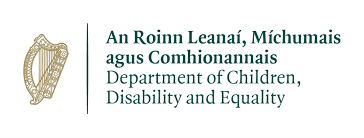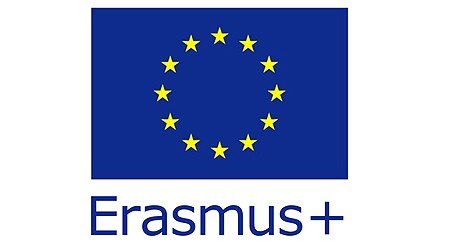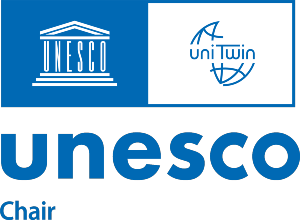Current Projects
| Project Title |
Knowledge Synthesis project to inform a review of Children First: National Guidance for the Protection and Welfare of Children 2017 |
| Commencement Date |
January 2026 |
| Research Team |
Professor Caroline McGregor, Dr Carmel Devaney, Professor John Canavan |
| Project Summary |
This project is commissioned by the Department of Children, Disability and Equality. In will involve a knowledge synthesis to inform a review of Children First: Guidance for the Protection and Welfare of Children 2017 which was published in 2017. The Guidance outlines the Irish statutory obligations for the protection and welfare of children and sets out best practice procedures that should be followed by all organisations involved with children. The Guidance is intended to raise awareness of child abuse and neglect, make clear the responsibilities of mandated professionals and organisations and to contribute to overall improvement of safeguarding and protection of children. This project will provide a report to the DCDE to inform the update of the Children First Guidance. It will provide: a) updated knowledge and understanding to inform the main considerations in Children First including definitions of abuse and neglect, public responsibilities, mandatory reporting, organisational leadership and co-operation and procedures for working with the Gardai. b) a more general review of trends and issues relating to new ways of thinking and developing child protection and practice nationally and internationally that can inform how the updated Guidance is framed. |
| Funded By |
|
| Project Title | Exploring the Complexities of Research-policy Interactions in Ireland through the Micro-level Lens of the Individual Researcher |
| Commencement Date |
March 2025 |
| Research Team |
Dr Brendan Dolan, Prof John Canavan, Prof Caroline McGregor, Fergal Lynch |
| Project Summary |
Further information available here. |
| Funded By |
|
| Project Title | An Evaluation of University of Galway Access Programmes: Diploma in Foundation Studies |
| Commencement Date |
November 2024 to December 2025 |
| Research Team |
Dr. Cormac Forkan, Dr. Brendan Dolan, Miss Annemarie Shalloo |
| Project Summary |
The overall aim of the Access Centre is to create a supportive learning environment whereby students who have experienced socio-economic disadvantage, students with disabilities and mature students are enabled to access, participate, and succeed within higher education. The aim of this research is to measure the social impact of the Diploma in Foundation Studies run by the Access Centre. This will be carried out utilizing a Social Return on Investment methodology, incorporating the lived experience of those who have engaged with the programme. A further aim, based on research findings, is to develop an evaluative framework for use by the Access Centre in terms of measurement of future impact and performance. |
| Funded By |
|
| Project Title | Social Withdrawal in Young People: An exploration through youth voice of youth work interventions in combatting social withdrawal in young people |
| Commencement Date |
December 2024 |
| Research Team |
Jackie Murphy (PI), Dr Bernadine Brady, Dr Charlotte Silke & Dr Danielle Kennan |
| Project Summary |
|
| Funded By |
|
| Project Title | A quality assurance implementation protocol for family support services in Europe. An evidence -based and culturally informed model for professional practice |
| Commencement Date |
2023 |
| Research Team |
Professor John Canavan & Dr Carmel Devaney |
| Project Summary |
Building on the work of Eurofament Professor John Canavan & Dr Carmel Devaneyare part of newly established project funded through a COST Innovators Grant (IG18123) working on quality assurance protocols for family support practice and services in Europe(QA[4]EuroFam). Entitled ‘A quality assurance implementation protocol for family support services in Europe. An evidence -based and culturally informed model for professional practice’ this project commenced in November 2023, and has members from 25 countries and 10 European entities. For more information see:
|
| Funded By |
|
| Project Title |
Ment4EU |
| Commencement Date | 2023 |
| Research Team |
Dr Bernadine Brady & Dr Charlotte Silke |
| Project Summary |
Dr Bernadine Brady was part of a successful Erasmus + bid under the Action KA220-HED - Cooperation partnerships in higher education. The three-year project, called Ment4EU commences in December 2023. The goal of Ment4EU is to help higher education keep abreast of the growing significance of social mentoring in policy and practice across nations. A consortium of universities from Austria, Belgium, Ireland, the Netherlands and Spain will develop guidance on how universities can develop mentoring schemes for social inclusion and engage more responsibly with their communities. |
| Funded By |
|
| Project Title | Systems and Complexity in Health and Social Services |
| Commencement Date |
2021 |
| Research Team |
Dr Aisling Gillen, Professor John Canavan |
| Project Summary |
Programme Aims:
Programme Activities:
Outputs: Webinar 1 Complexity Theory and Child Protection and Welfare Webinar 2 Complexity Theory and Public Services Webinar 3 The complexity of finding out what works Webinar 4 Complexity and Leadership |
| Project Title | Evaluation of “Designing Futures: Next Generation Graduates” |
| Commencement Date |
April 2021 |
| Research Team |
Dr Connie O’Regan, Dr Tony Hall & Professor Michelle Millar |
| Project Summary |
The goal of Designing Futures is to enable every student to succeed in the future world of work. The project will ultimately empower every student to design their personalised skills development pathway, and to have their transversal skills achievements recognised on graduation alongside their degree. This approach, if more widely adopted, could position Ireland as a leader in innovative, student-centred and enterprise-engaged education in Europe. Designing Futures will initially transform undergraduate Arts and Science programmes and then building out to all students.
|
| Funded By |
|














